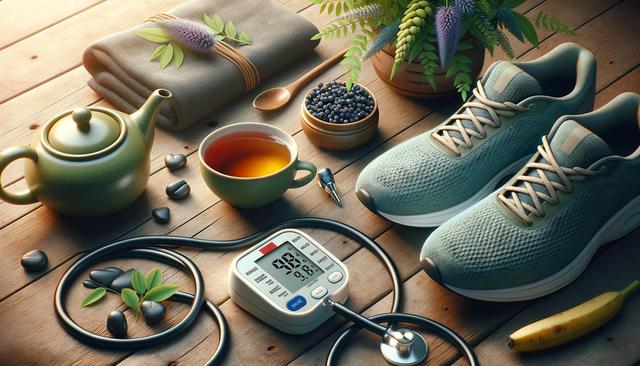How to lower your blood pressure naturally

Understanding High Blood Pressure and Its Impact
High blood pressure, or hypertension, is a common health concern that affects millions of people worldwide. Often referred to as a ‘silent killer’ due to its lack of obvious symptoms, hypertension can lead to serious complications such as heart disease, stroke, and kidney damage if left unmanaged. While medication is frequently prescribed, an increasing number of individuals are turning to natural treatments to help control their blood pressure levels. These approaches not only support long-term cardiovascular health but also empower individuals to take an active role in their well-being.
At its core, high blood pressure occurs when the force of blood against artery walls is consistently too high. This can be influenced by various factors including diet, stress, physical activity, and genetics. Recognizing the root causes is the first step toward effective, sustainable management. There is growing interest in identifying holistic strategies that work in harmony with the body, minimizing the need for pharmaceutical dependence where possible.
Dietary Adjustments to Support Healthy Blood Pressure
One of the most impactful ways to lower your blood pressure naturally is through dietary changes. Certain foods have been shown to support vascular health, reduce inflammation, and aid in managing sodium levels, which are directly tied to blood pressure regulation. Emphasizing a nutrient-rich, heart-friendly eating pattern can deliver noticeable benefits over time.
Consider incorporating the following into your daily meals:
- Leafy greens like spinach and kale, which are high in potassium
- Whole grains such as oats and brown rice
- Foods rich in magnesium, including almonds and avocados
- Low-fat dairy, which provides calcium without the excess saturated fat
- Berries, known for their antioxidant properties
Reducing sodium intake is also critical. Processed foods often contain hidden salt, so cooking at home with fresh ingredients can help you better control your intake. Additionally, increasing your intake of fiber and healthy fats – particularly omega-3 fatty acids found in fish and flaxseeds – can further contribute to improved blood pressure control.
Physical Activity and Exercise Habits
Regular exercise is another cornerstone of natural high blood pressure treatment. Engaging in physical activity helps the heart become more efficient at pumping blood, thereby reducing the pressure on arteries. It also contributes to weight management, another key factor in maintaining optimal blood pressure levels.
Experts typically recommend at least 150 minutes of moderate aerobic activity per week, which can include:
- Brisk walking
- Cycling
- Swimming
- Dancing
- Jogging, depending on fitness level
Even smaller lifestyle changes, such as taking the stairs instead of the elevator or incorporating short activity breaks throughout the day, can make a meaningful difference. Resistance training, when integrated properly, may also provide additional cardiovascular benefits. The key is to find a routine that is enjoyable and sustainable, ensuring long-term adherence and positive health outcomes.
Stress Management and Mental Wellness
Chronic stress can play a significant role in elevated blood pressure levels, often exacerbating symptoms without the individual even realizing it. Finding ways to manage stress is therefore essential in any holistic approach to hypertension. Techniques that promote relaxation and emotional balance can assist in regulating blood pressure naturally.
Effective stress-reducing practices include:
- Mindfulness meditation
- Deep breathing exercises
- Yoga or tai chi
- Spending time in nature
- Journaling or engaging in creative hobbies
Establishing a consistent sleep routine and reducing screen time, especially before bed, can also contribute to better stress regulation. As stress levels decrease, so too can the physiological triggers that contribute to high blood pressure, offering an important non-pharmaceutical avenue for improvement.
Herbal and Supplement-Based Approaches
For those interested in adding natural supplements to their routine, several options have shown promise in supporting healthy blood pressure. While individual responses may vary, these supplements can complement dietary and lifestyle changes when used appropriately and under professional guidance.
Some widely discussed natural options include:
- Garlic extract, known for its vasodilatory effects
- Coenzyme Q10 (CoQ10), an antioxidant that may improve heart function
- Hibiscus tea, which has been linked to mild reductions in blood pressure
- Magnesium supplements, beneficial for those with low dietary intake
- Omega-3 fatty acids, especially in the form of fish oil
It’s important to note that while these supplements can be helpful, they are not a replacement for medical care. Consulting with a healthcare provider before beginning any supplement regimen ensures that there are no interactions with existing medications or conditions.
Conclusion: A Personalized Path to Better Heart Health
High blood pressure can be a challenging condition, but with growing interest in natural approaches, individuals now have more tools available to manage it effectively. Lifestyle changes, including a balanced diet, physical activity, stress management, and prudent supplement use, offer a multi-faceted way to support cardiovascular health. These options empower individuals to take control of their health in a sustainable and informed manner.
While natural treatments can be highly beneficial, they should be seen as complementary to regular medical check-ups and professional advice. By exploring and implementing these strategies thoughtfully, those living with high blood pressure can work toward improved wellness and a better quality of life.
